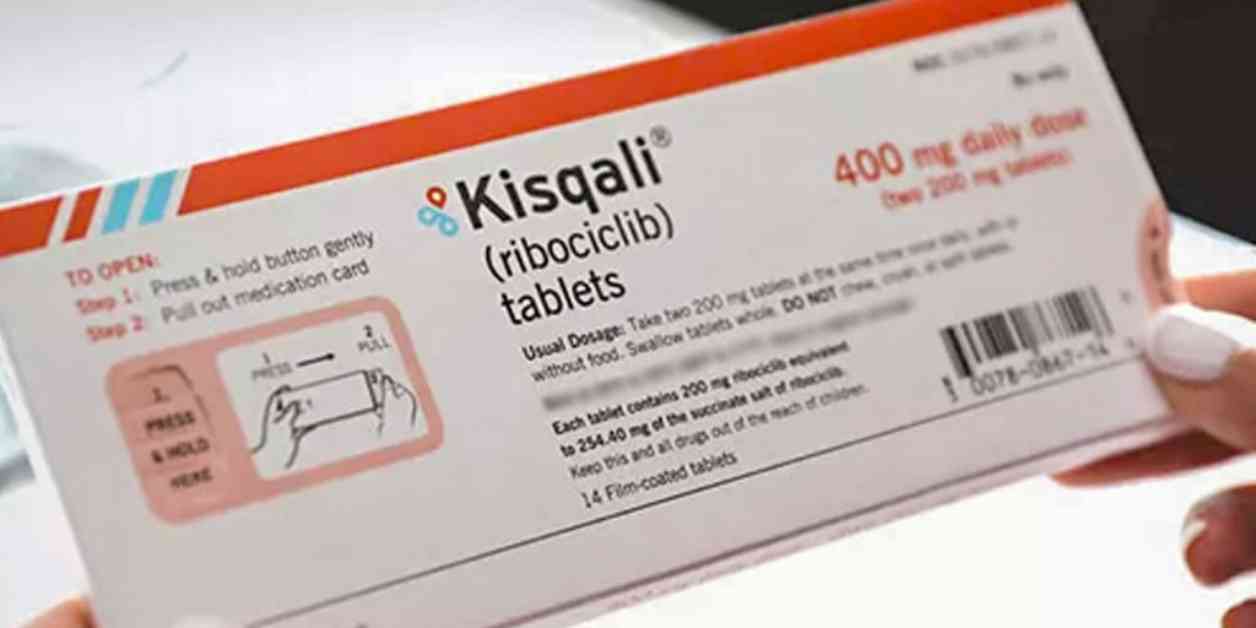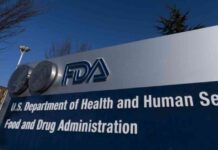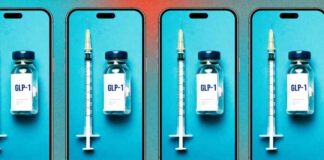The FDA has recently approved Kisqali, a drug initially used to treat metastatic breast cancer, for the treatment of early-stage breast cancer as well. This approval marks a significant milestone in the fight against breast cancer, as it means that thousands of women diagnosed with early-stage breast cancer now have access to a medication that can help prevent the recurrence of the disease.
Dr. Eleonora Teplinsky, head of breast and gynecologic medical oncology at Valley Health System in New Jersey, highlighted the importance of this approval by stating, “Depending on your risks and everything, up to 30% of breast cancers can come back. If it comes back as stage four, then while we have treatment, it’s not curable. People die from that cancer.”
A phase 3 clinical trial conducted by drugmaker Novartis showed promising results with Kisqali, demonstrating a 25% reduction in the risk of breast cancer recurrence after three years when used in conjunction with standard treatments such as chemotherapy, surgery, and radiation followed by hormone therapy. This risk reduction increased to 28.5% after four years, as reported at the European Society for Medical Oncology conference in Barcelona.
Dr. Vandana Abramson, co-leader of the Breast Cancer Research Program at the Vanderbilt-Ingram Cancer Center, emphasized the importance of incremental decreases in the risk of cancer recurrence, stating, “We want to do everything that we can to incrementally decrease the chances of this cancer coming back.”
Prior to this approval, only Verzenio, another drug in the same class, was approved to reduce the risk of early breast cancer recurrence, but it was limited to patients with a very high risk of recurrence. Kisqali, on the other hand, will be available to a broader group of patients, providing them with a potentially less aggressive treatment option with fewer side effects.
The expanded approval is specifically for patients with HR-positive, HER2-negative breast cancer, which is the most common form of the disease. It applies to stage two and three diagnoses, indicating that the cancer has not spread beyond the breast or nearby lymph nodes.
The rise in breast cancer rates among younger women is a concerning trend, with a study published earlier this year in JAMA Network Open reporting a 15.6% increase in breast cancer rates among women aged 20 to 49 from 2000 to 2019. This highlights the importance of advancements in treatment options like Kisqali for patients of all ages.
Nikki Odum, a breast cancer survivor diagnosed at the age of 36, shared her experience with the disease and the impact of Kisqali on her treatment journey. After undergoing a double mastectomy, chemotherapy, and radiation, Odum participated in a clinical trial for Kisqali, which she described as a “no-brainer” decision for her.
Dr. Denise Yardley, associate director of breast cancer research at the Sarah Cannon Research Institute in Nashville and a clinical trial investigator, explained that patients in the trial received either standard hormone therapy or Kisqali plus hormone therapy for three years post-main treatment regimen. Monitoring for side effects was a crucial aspect of the trial, with about 20% of participants experiencing side effects leading to discontinuation of Kisqali.
Despite facing challenges such as a rash that temporarily halted her treatment, Odum expressed gratitude for Kisqali, stating, “for me, Kisqali was something that was a bonus. It’s something that I know in my heart helped me.”
While the trial results showed positive outcomes over a three-year period, the long-term impact of Kisqali on preventing late recurrences of breast cancer remains to be seen. Dr. Komal Jhaveri, a breast medical oncologist at Memorial Sloan Kettering Cancer Center, emphasized the need for continued research to assess the drug’s efficacy in preventing both early and late recurrences.
One of the considerations for patients exploring Kisqali as a treatment option is the cost associated with the medication. Dr. Abramson highlighted that the out-of-pocket cost for a three-year treatment course could range from $300,000 to $400,000, making affordability a significant concern for many patients.
With the expanded approval of Kisqali, there is hope that insurance coverage will be more readily available for patients seeking this treatment option. However, the potential financial burden on the healthcare system as a whole remains a consideration as more patients access this innovative therapy.
Dr. Teplinsky acknowledged some criticisms of the study, noting that the benefit of Kisqali may seem modest at 3%, but ultimately, the decision to pursue treatment options like Kisqali should be left to the patient. Providing patients with options and empowering them to make informed choices about their care is essential in the fight against breast cancer.
For Nikki Odum, the peace of mind and sense of control that Kisqali offered her in her cancer journey were invaluable. She emphasized the importance of taking proactive steps to continue living despite the challenges posed by a breast cancer diagnosis.
In conclusion, the FDA approval of Kisqali for the treatment of early-stage breast cancer represents a significant advancement in personalized medicine and targeted therapies for breast cancer patients. As research continues to evolve and new treatment options emerge, the hope is that more patients will have access to innovative therapies that can improve outcomes and quality of life in the fight against breast cancer.

















